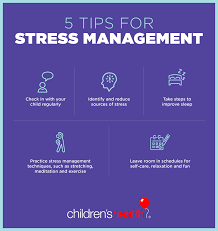Stress is a part of everyday life, but the more you have, the more at risk your mental and physical health is. No one understands this better than physicians.
Physician burnout is a reaction to stress, and it’s something that many physicians experience over the course of their careers. Fortunately, there are some simple techniques that doctors can learn to combat stress before it gets worse.
From identifying your stressors to finding a support system, here are seven ways to effectively manage stress as a doctor.
Identify Stressors
The first step in managing stress in an effective manner is to determine the source of that stress. Then and only then can you take steps to alleviate, remediate, or remove the issue.
As a physician, the cause of your stress could be any number of reasons:
- Consistent back-up of patients in your appointment schedule
- Lack of support staff
- Excessive workload
- Financial worries
- Concerns about personal health issues
Once you identify your stressor, put a plan in place to remedy it.
For example, if you have an excessive workload, it may be time to add another physician to the team. If you’re worried about personal health concerns or personal finances, consider getting a disability insurance policy to protect your income in case you become too ill or injured to work.
This article from Physicians Thrive dives deeper into disability insurance for surgeons and other high income-earning physicians.
Focus on Your Own Health and Wellness
The important work that you do can’t be your sole focus in life. When you’re in the workplace, patient care should be your top priority. When you’re outside of the workplace, you should be your top priority.
Developing healthy habits is an important tool in managing stress. By eating a healthier diet, exercising more, and improving sleep habits, doctors can improve both their physical and mental health. The better your mental and physical health, the easier it is to combat stressful situations.
Schedule Time Off
Physicians are under a great deal of pressure when they’re on the job. One way to alleviate that pressure and reduce the stress that comes along with it is to take time off.
Schedule holidays and vacations. Carve out personal time for social activities with family and friends. When you are on the job, take a lunch break as well as mini breaks throughout the day to give yourself a chance to relax and unwind.
Taking time off is not selfish. It’s essential if you want to perform at optimum levels when you’re on the job.
Learn Deep Breathing Techniques
There’s a scientific reason why people say “take a deep breath” when someone is anxious and nervous. Shallow breaths don’t fill the lower part of the lungs with the amount of oxygenated air they require. Deep breathing does.
By taking deep breaths you can allow the proper amount of oxygen into your lungs, slow your heartbeat, and lower your blood pressure — all of which can be outward signs that your body is under stress. Practicing meditation, yoga, and tai chi are all great ways to learn deep breathing and put your body into a more relaxed state.
Spend More Time Outside
Sunlight increases serotonin levels in the brain, which boosts your mood, makes you feel happier, and makes you feel more at ease. UV rays also impact the skin by stimulating cells that make endorphins, which help you to further reduce stress.
Whether you’re on the job or enjoying a day off, take advantage of sunny days and get outside to soak up some of those rays.
Learn to Prioritize Tasks
If you’re feeling overloaded with work, take the time to make a to-do list that prioritizes tasks by level of importance. When time is limited it’s best to focus on the most important tasks and let the less important to-dos take a backseat.
It’s also important to learn how to say no. The heavier your workload, the more pressing this is, as adding to an already full plate will only make you feel more stressed out.
Find a Stress Management Support System
Stress can exacerbate and increase your likelihood of developing serious medical conditions, including heart disease, anxiety and depression, and gastrointestinal issues. Don’t wait until your stress manifests itself in a physical way. Insteadtake advantage of resources that can help you better cope with it.
Some hospital systems and medical practices have stress management support systems in place for employees. If your employer offers such a resource, utilize it.
You can also seek the guidance of a mental health professional. Simply talking about your issues and what’s causing you to struggle with stress can help alleviate those feelings.
In Conclusion
We all suffer from varying amounts of stress, but there are some easy things we can all do to decrease our stress levels and better manage it when it does surface. From taking time off to learning deep breathing techniques to getting more sunlight, knowing how to manage stress can prevent you from suffering even greater medical conditions down the road.













